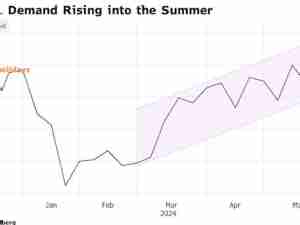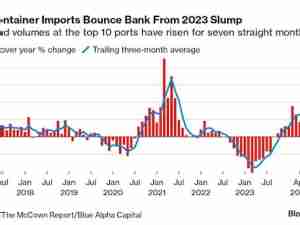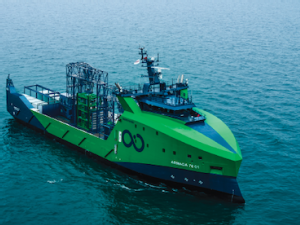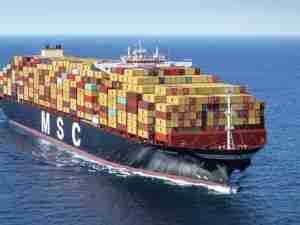A Danish fuel-tanker giant said it’s stopped allowing its fleet to sail through through the southern Red Sea, evidence that overnight strikes on Yemen risk adding to disruption that’s already beset oil markets.
Torm, which owns about 80 ships, said it is halting all transits until further notice.
The decision is in line with notices from industry trade groups, who report that the Combined Military Forces, encompassing both the US and UK navies, has advised all merchant ships to stay away from the area of hostility.
For ships that heed the advice, it means Egypt’s Suez Canal — a vital trade artery — is no longer a usable route to cut between Asia and Europe. It’s unclear how long the blockage will last.
“Should the situation escalate, all ships must be expected to avoid the Red Sea until safe passage is restored and effectively close the Suez Canal for all ships” except for vessels that aren’t going all the way through the Red Sea, Niels Rasmussen, chief shipping analyst at trade group Bimco said.
The UK and US launched more more than 60 airstrikes on Houthi targets in Yemen overnight in a bid to stop Iran-backed attacks on merchant shipping. The militant group’s leader vowed a big response, underscoring the immediate need for caution among merchant shippers.
Oil prices rose after the strikes. Brent futures were trading at $80.28 a barrel, a gain of 3.7%, at about 12:06 p.m. in London
Until now, the majority of Houthi attacks on vessels have been against container ships carrying manufactured goods, causing a vast rerouting of trade for that part of the industry with most owners avoiding the area.
By contrast, the number of energy tankers diverted has so far remained relatively small. Commodity trading giant Trafigura Group estimated on Thursday, before the strikes, that tanker movements through the area were down by 15% to 20%. That echoes other industry estimates.
Multiple tankers carrying oil products and chemicals that were headed toward the Bab el-Mandeb Strait either slowed down or u-turned around the time of the attacks.
Despite that, some vessels were still going through, digital vessel-tracking showed Friday. One shipbroker reported that most oil tanker owners have elected to pause transits through the area though some were continuing.
Merchant shipping has a longstanding right to freedom of passage, meaning that vessels are still legally permitted to go through, although it’s not clear what the insurance status of such transits would be.
A long-term closure of the designated area in the Red Sea would likely increase demand for tanker, container, and dry bulk shipping by 12%, 11%, and 5% respectively, Bimco’s Rasmussen said.







_-_28de80_-_dfa0b3ed36b34f1e79d3400f73a0de832fe686cd_lqip.jpg)


